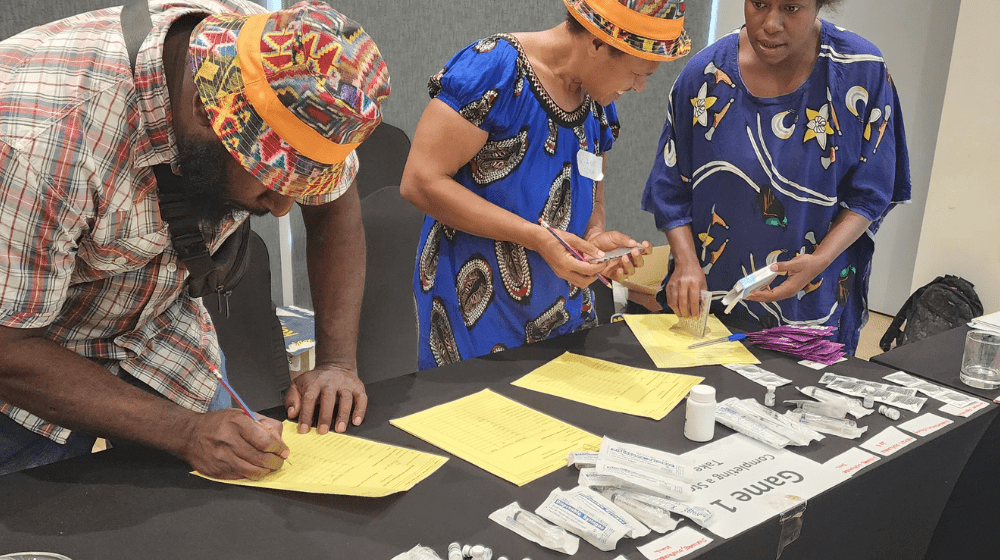Since 2019, more facilities have personnel trained in Logistics Information Management Systems (LMIS). These systems assist health facility staff in assessing stock status, ordering stock, and ensuring appropriate storage of medicines.
The Health Facilities Survey 2022, conducted by UNFPA in partnership with the National Department of Health, assessed the availability of essential reproductive health medicines and services in addition to the human resource capacity of health facilities.
In 2019, 38% of health facilities in Papua New Guinea had at least one team member trained in LMIS. This increased to 48% in 2022. The modest increase is a significant development given the disruptions to the health system caused by the COVID-19 pandemic. The result shows that the National Department of Health was able to continue the training of personnel throughout this time.
Utilising this system for assessing stock helps staff calculate the amount stock being consumed, in order to inform how much stock to order, and how often. This can help prevent stock-outs and wastage.
Training on Logistics Management to Reduce Stock Outs
Results from the survey also showed that 42% of facilities place orders for reproductive health medicines based on estimation, rather than a formula. This method is most common with 70% of facilities using estimation. In comparison, 61% of facilities in Momase and 47% in the Highlands utilise formulas to calculate their stock orders.
Accelerating the roll-out of training on stock management can help take out the guess work and provide more information on the consumption, and therefore need, of essential medicines.
Strengthening Maternal Health Medicine Supply Chains
The results of this study assist UNFPA and the National Department of Health in understanding and responding to the instances of stock-outs in health facilities. The most common reasons for stock-outs were delays in ordering and recieving these essential medicines.
The National Department of Health, with support from UNFPA, has been conducting logistics and supply chain management trainings for health workers in each province of Papua New Guinea. The trainings include health facility pharmacists, medical officers, nurses, and warehouse personnel to improve efficiency and reduce stock outs and wastage across the health system.
UNFPA and Reproductive Health Commodities
UNFPA works with the National Department of Health (NDoH) to address the unmet need for family planning and reduce maternal mortality and morbidity. Through support to midwifery in-service training and equipment, procurement and distribution of contraceptives and reproductive health commodities, support to the Certification in Basic Pharmaceutical Management course for Pharmacy Assistants, and sexual and reproductive health advocacy, UNFPA’s partnership with NDoH focuses on strengthening local expertise in delivering improved health services Papua New Guinea.
With support from the Australian Government, UNFPA has completed a national Assessment for Reproductive Health Commodities and Services to assess the availability and quality of essential reproductive health commodities and quality of family planning and maternal health services in primary, secondary, and tertiary facilities across the country.
In addition, UNFPA procured $730,000 USD of reproductive health commodities in 2022 with support from UNFPA Supplies and mobilized $260,000 USD for strengthening the supply chain and health system in PNG.




